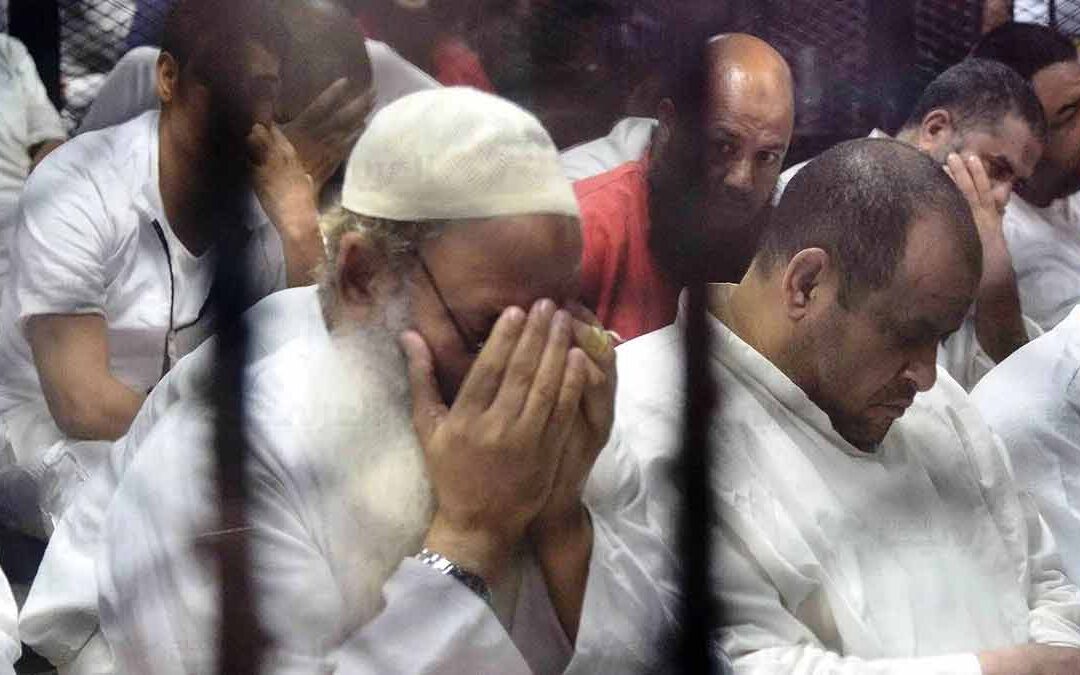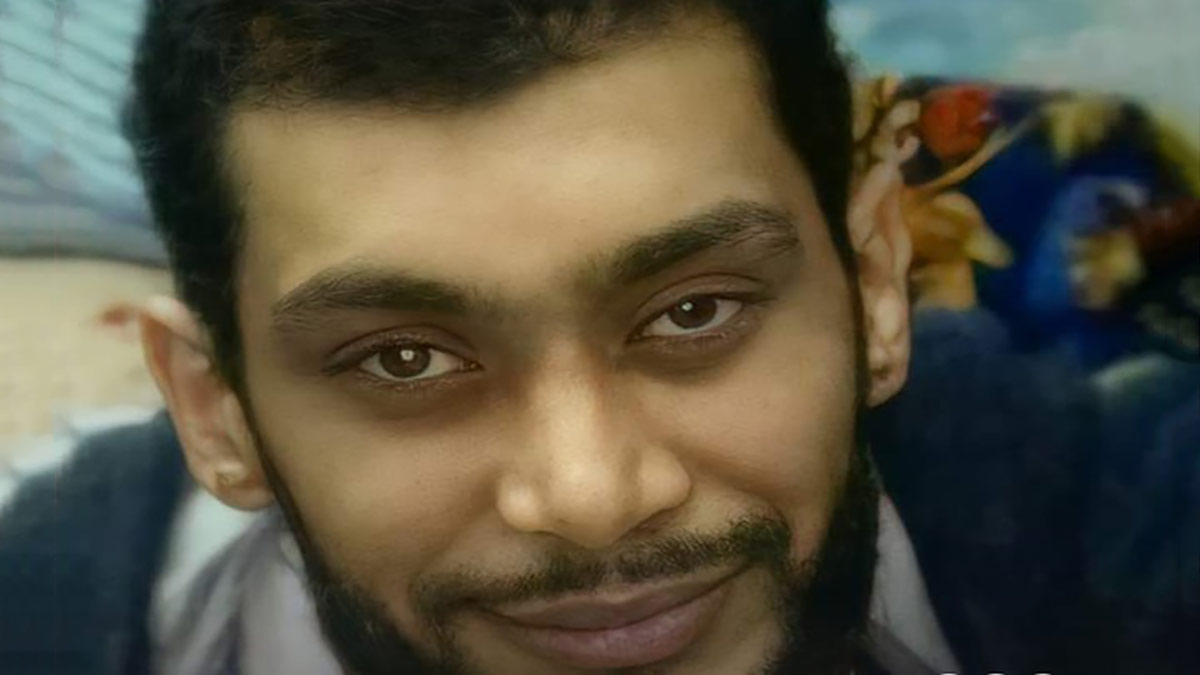New Massacre against Innocent People
Arab Organisation for Human Rights in the UK (AOHR UK) confirmed that the Egyptian authorities committed new extrajudicial executions against a number of detainees in Case No. 12749 of 2013 Giza Felonies. The verdict was issued based on fabricated security investigations that lacked logic and credibility, in addition to the fact that none of the witnesses was able to identify any of the defendants.
On Monday, April 26, 2021, the Egyptian authorities carried out the death sentences at dawn in Wadi Al-Natrun Prison in complete secrecy and without prior notification to the families.
According to the official announcement of the Ministry of Interior, 09 of the 17 defendants sentenced to death in this case were executed, but the lawyers and families of the defendants confirmed the execution of all the defendants.

The detainees executed were Abdel Rahim Gibril, Walid Saad Abu Omaira, Mohamed Rizk Abuel Soud, Ashraf Sayed Rizk, Ahmed Owes Hussein, Essam Abdel Moety, Ahmed Abdel Nabi, Badr Abdel Nabi, Qutb Sayed Qutb, Omar Mohamed El-Sayed, Izzat Al-Attar, Ali El-Sayed Kenawy, Abdullah Saeed, Mohamed Yousef Al-Seidi, Ahmed Abdel Salam, Arafat Abdel Latif, Mustafa El-Sayed El-Kerfesh.
AOHR UK affirmed that the identity of those who raided the police station in question remains unknown – the state has not presented any concrete evidence linking the men executed (or any of those charged) with the raid. Many of their testimonies were extracted under tortured, and are therefore inadmissible. Indeed, the first trial was quashed because of the state’s use of torture.
However, on 24 September 2018, the Egyptian Court of Cassation ruled against the 135 defendants’ appeals. 20 death sentences were upheld, of which 17 were carried out today.
Defendant in his 80s
AOHR UK stated that man in his eighties, Abdel Rahim Abdel Halim Abdullah Gibril, was among the defendants despite the illogical accusations raised against him, which includes participating in acts of violence. Eyewitnesses have presented their testimonies stating that Gibril was not among those originally present near the Kerdasa police station on the day of the incident.
Moreover, The Prosecution’s witnesses denied signing on the written statements confirming his participation in the events. Nevertheless, the court ignored these documents and decided to execute him.
According to the lawyer of Abdel Rahim, who never committed any criminal act throughout his life, he suffers from psoriasis and cannot walk long distances, which makes it impossible for him to participate in any criminal operations.
Sisi is primarily responsible for killing those innocent people
AOHR UK stressed that detained dissidents in Egypt suffer serious violations since the moment of their arrest, followed by subjecting them to enforced disappearance, denying them communication with the outside world, subjecting them to severe torture in order to confess to crimes they never committed, then sentencing them in unfair trials which issue harsh sentences against them that amount to execution, implemented without delay.
AOHR UK added that these executions are part of a wider campaign of repression against all critics of the regime in al-Sisi’s Egypt, a campaign that the AOHR UK continues to deplore.
Only six weeks ago, over 30 states at 46th Session of the United Nations (UN) Human Rights Council criticised the “restrictions on freedom of expression and the right to peaceful assembly, the constrained space for civil societyand political opposition, and the application of terrorism legislation against peaceful critics” – all of which are part of a deliberate strategy on the part of the state.
The state attempts to give this campaign of repression a veneer of legitimacy through funding television series such as The Choice – a program that attempts to launder the regime’s crimes against its critics, including the infamous Rabaa massacre.
AOHR UK called on the Secretary General of the United Nations and the international community to take serious stances and serious measures to pressure the Egyptian authorities to stop carrying out the death penalty against dozens of detainees who have received similar sentences, as time is running out and the lives of hundreds of convicts are in great danger.






























